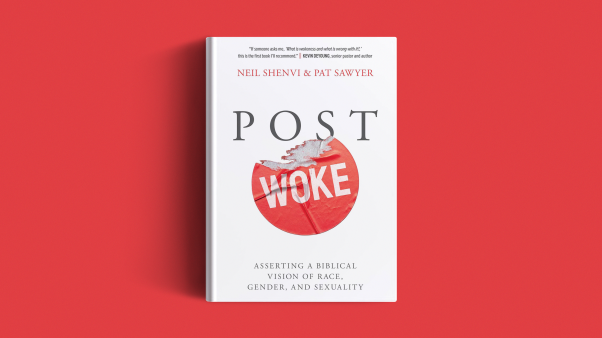Tom Steers, founder and co-director of Asian American Ministries for The Navigators, recently wrote a guest opinion column for Christianity Today (July 7, 2010). The column is entitled, “Needed: More Monocultural Ministries”.
In the opinion piece (“not necessarily representing the opinion of the publication,” as CT makes clear in the footer), Steers argues that a multicultural society demands more monocultural ministries. In so doing, however, he does not clearly state what he means by use of the term, “ministry.” Consequently, I believe he a) confuses evangelism with local church development, b) wrongly exegetes Scripture in attempting to support his claim, and otherwise c) speaks from assumption in stating what advocates of the multi-ethnic church truly believe. With this in mind, the following blog entry respectfully, but critically, challenges Steers’ thinking.
Steers writes:
“Some argue that since we are an increasingly multicultural society, our churches should become more multicultural. There is a certain logic to that. As long as there are people who want to be culturally and socially multicultural, or multiethnic, there also must be structures for them. Such ministries are crucial for healing America’s racial and ethnic wounds. They potentially model the unbiased oneness that Jesus prayed for in John 17.”
Theologically informed “advocates” of the multi-ethnic church however (at least, none that I know) are not suggesting, as the author states, “since we are an increasingly multicultural society, (that) our churches should become more multicultural.”
Nor are Bible-centered proponents of the multi-ethnic church interested in the “logic” of “providing structures” for “people who want to be culturally and socially multicultural, or multiethnic,” as if guided by sociology, political correctness, or changing demographics. Furthermore, while we certainly celebrate any gains that are made through “such ministries” in “healing America’s racial and ethnic wounds,” informed advocates of the multi-ethnic church understand that so-called racial-reconciliation is only a by-product of two a priori works of reconciliation, namely a) reconciling men and women to God through faith in Jesus Christ, and b) reconciling local congregations to the principles and practices of first century churches such as existed at Antioch and Ephesus, for example. Yes in these churches, men and women of diverse ethnic and economic backgrounds proclaimed God’s love for all people by practicing love for one another beyond the distinctions of this world that so often and otherwise divide.
The author continues:
“But despite what some advocates imply, multicultural ministry is not more biblical, let alone always most effective. I think our multicultural situation demands that we also employ what I call a monocultural approach.”
The question that is important here is: “monocultural approach” to what? I assume the author means “ministries,” as he alludes in the title of his submission. But this is too broad a term for an otherwise precise, necessary, discussion and exegesis of Scripture. Again, no one I know advocating the multi-ethnic church today is saying multicultural ministry is more biblical than a monocultural approach. What we are saying is that nowhere in the New Testament will you find the apostle Paul or anyone else encouraging us to plant or develop churches focused on specific people groups!To suggest that the New Testament teaches otherwise is to eisegete, not exegete, the text.
For example, Steers later writes: “In Scripture we have examples of both monocultural ministry (Jesus) and multicultural ministry (some churches founded by Paul).”
But let us be clear: in Scripture we do not have examples of Jesus planting/developing homogeneous churches, only of him doing monocultural evangelism and initial discipleship. And likewise not just some, but all of the churches founded by Paul were multicultural (multi-ethnic). On this point, I invite readers to carefully examine Paul’s travels in Acts, as well as his letters to the churches contained in the New Testament. In so doing, you will find that in every case Paul is concerned with both Jews and Gentiles not only coming to know Christ, but coming together as one in him via the local church.
For too long, unchecked statements that assume there were Jewish churches and there were Gentile churches (as Steers alludes) have served to justify the church growth movement and more specifically, the Homogeneous Unit Principle (HUP) as it applies to church planting, growth and development. But the New Testament does not support this argument. As I have already stated, Jesus’ “ministry” was not focused on church planting, growth or development; indeed, the Church is something he only foresees (Matthew 16:18), and something not established until Acts 2.
What Jesus was focused on in preparation for the Church was a) pre-evangelism (via acts of healing, the feeding of the 5,000, etc.), b) evangelism, and c) the initial discipleship of a single people group (namely, Jewish disciples). Yet in the end, having completed their training, he commands his disciples to go beyond the Jewish nation, as every student of Scripture knows (Matthew 28:19, 20; Acts 1:8). Interestingly, they do not; and it is only after persecution of the (homogeneous) church they established in Jerusalem that the Gospel and local churches thereafter transcend ethnocentrism. It is then that the multi-ethnic, mega, missional, church at Antioch arises to become the model and standard for local church planting, growth and development for the rest of the New Testament. Technically speaking, then, Jesus did not plant a church; only the seeds (evangelism and discipleship) from which the Church (and local churches, too) would one day spring forth.
Paul, too, promotes targeted evangelism (1 Corinthians 9:20-23). But as I have tried to make clear, a ministry of pre-evangelism/evangelism/discipleship, and a ministry of local church planting/growth/development are two different ministries altogether.
Part 2 of Mark DeYmaz’s response to Tom Steers article will be posted soon.
Mark DeYmaz will be speaking at the Multi-Ethnic Church Conference on November 2-3 in San Diego. Learn more about the event at www.mosaix.info.








